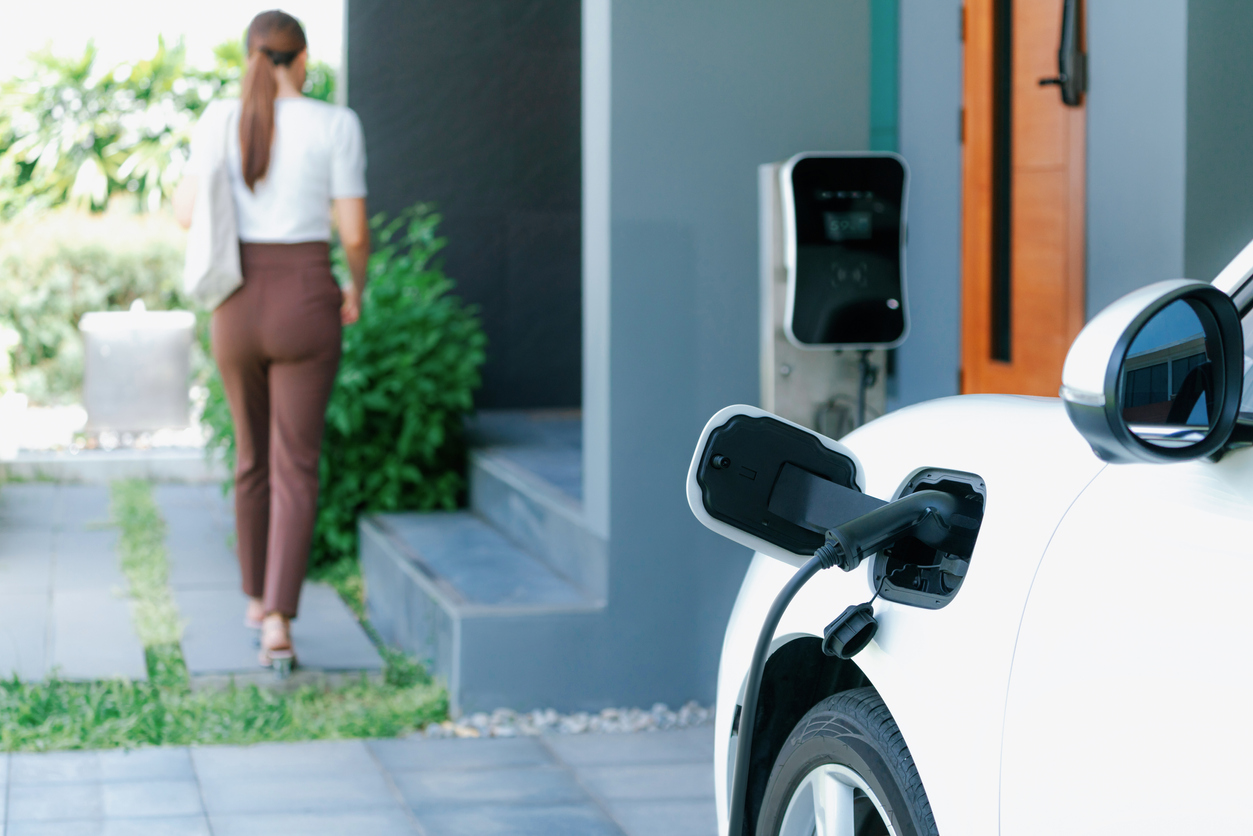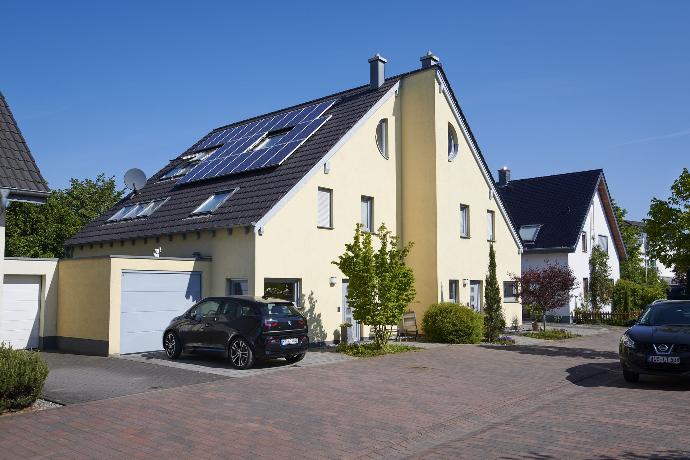As the transition to renewable energy sources accelerates, the integration of electric cars and photovoltaic solar energy represents a promising turning point for reducing our carbon footprint. One question that frequently arises among consumers interested in this green synergy is how to estimate the electricity requirements of an electric vehicle ?
If you buy an electric vehicle and decide to recharge it at home using a standard household plugs or a charging point, your electricity consumption will quickly increase, and it would be very worthwhile having solar panels to reduce the cost of your bills.
Combien de panneaux solaires sont-ils nécessaires pour recharger sa voiture électrique ?

Here are the various factors that will help you estimate the number of panels you need to recharge your electric vehicle :
- Car battery capacity
How much energy is required to fully recharge the battery? Consult the manufacturer's specifications to find out your vehicle's average energy consumption per kilometre (kWh/km).
- How do I use my electric vehicle
How many kilometres do I drive and how many times a day/week/month do I need to recharge my car battery? Multiply the energy consumption by the number of kilometres you drive to obtain the daily energy consumption.
- My home's electricity requirements
Excluding electric vehicles, what is my annual consumption in kWh? You can find this information on your electricity bill or annual statement sent by your supplier. Your household's electricity consumption depends on a number of factors, such as the number of people in the household and the number and type of electrical appliances you have and how they are used on a daily basis.
- The performance of the photovoltaic system
What is the estimated annual electricity output of the solar panels? Will the system produce the desired amount of electricity for the household's needs? Depending on the number of panels, the slope of the roof and the amount of sun the house receives, an array will produce a certain number of kWh per year.
The example of the Smekens family
12 solar panels Canadian Solar 430 Wp south oriented

The Smekens family consists of 4 people, 2 adults and 2 children. They live in a 120m2 house in the Wallonia region, with a south-facing roof sloping at 35°. They have just bought an electric vehicle and a brand new photovoltaic system with 12 solar panels to produce the electricity they need.
Here's how they worked out how many panels they would need to cover all their electricity needs, including charging their electric car :
The car will be used solely by Mrs Smekens for her home-school-work journeys, a total of 40km per day. According to the technical specifications of the electric car purchased, it consumes around 15 kWh per 100 km, or 6 kWh per 40 km. Over a year, Mrs Smekens' electric car will therefore consume around 2190 kWh.
By the way, as the battery capacity is 58 kWh, it will need to be recharged every 7 to 10 days. It should be noted that some electric vehicle owners prefer to recharge their vehicle regularly to maintain the battery at an optimum level, while others choose to recharge only when the battery is almost empty. The recharging strategy depends on the battery management recommended by the manufacturer of your electric vehicle.
Before buying an electric vehicle, the Smekens family were already consuming 3000 kWh per year. Their total estimated annual consumption was therefore 5190 kWh (2190 kWh for the electric vehicle + 3000 kWh), so they needed 12 south-facing 430 Wp solar panels at a 35° angle to cover all their electricity needs, including recharging the electric vehicle.
For example, if their roof had faced west (270°), they would have needed 15 panels, if south-east, 13 panels, etc.
In short, if the installation is correctly sized, photovoltaic panels can produce electricity to charge the battery of an electric vehicle, as well as powering the whole house !